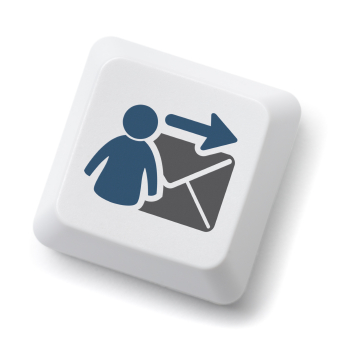Inbound Marketing, Inbound Sales, Inbound Life
 My guess is about a third of my readers know this subject way better than I do; and the rest have barely heard of it. Hopefully the third will forgive me my errors, in hopes of giving the two-thirds something of interest.
My guess is about a third of my readers know this subject way better than I do; and the rest have barely heard of it. Hopefully the third will forgive me my errors, in hopes of giving the two-thirds something of interest.
My sense of inbound marketing is cadged together from several sources, and I don’t remember to whom I should give credit. Hopefully they’ll write in to claim it. Anyway, here we go.
Inbound marketing, nominally, is a reaction to many media-based forms of selling. Our phone has become an instrument for outgoing calls only. Email is beginning to resemble spam. We have spam filters for email, caller-ID and do-not-call lists for the phone, time-shifting and premium channels for video. All to keep marketers at bay.
The alternative is networks we choose: LinkedIn, Twitter, Facebook, and communal sites like The Customer Collective. We invite people in to those networks, and so we answer the “phone” or the “beep” or whatever. Those people, and those channels, are the ones we accept marketing from.
So how does one market to that channel?
By serving Others. On Twitter, it’s doing 10 tweets about others to one about yourself. On blogs, it’s writing 10 comments on others’ blogs to writing one post on yourself. On LinkedIn it’s participating in 10 conversations to starting one yourself. And so on.
This is both radical and old as the hills. It’s radical for most mass marketers who are still trying to break through the email barrier, and for most corporate bloggers who think the world wants their official brand-spins. Basically, it’s radical for any marketers still trying to sell instead of offer engagement.
It’s as old as the hills for anyone who understands reciprocity. You give to get. You get what you want by getting others what they want. The love you make, you take, and so on.
In the online marketing sphere, companies like HubSpot do a great job of offering high quality free diagnostics. Having gotten something of value, their customers become trusting, and curious. Trusting that HubSpot knows what they’re doing, and curious to find out more. The most natural thing in the world is to respond favorably to an open-ended question about whether they can offer more help. Of course, thanks for asking.
In the life sphere, we do the same. We like people who do not need, and who give of themselves. We do not like people who are needy, particularly those who deny it, and who seek to get without giving. Given the chance, we hang out with the former, and not with the latter.
Thereby proving either the unfairness of life, or the paradoxical key to life, depending on how you look at it.
If you get inbound marketing, I’ll bet you believe in the connectedness of people, and the basic decency of mankind.
If you think inbound marketing is for fools who will only get themselves conned, I’ll bet you believe in the innate nastiness of people, and the need to protect yourselves from them.
Guess who’s happier.
It may not be quite all that simple—but mostly it is.

 ‘You must take the A train,’ is the opening lyric to Billy Strayhorn’s signature Duke Ellington song.
‘You must take the A train,’ is the opening lyric to Billy Strayhorn’s signature Duke Ellington song. Dharmesh Shah
Dharmesh Shah